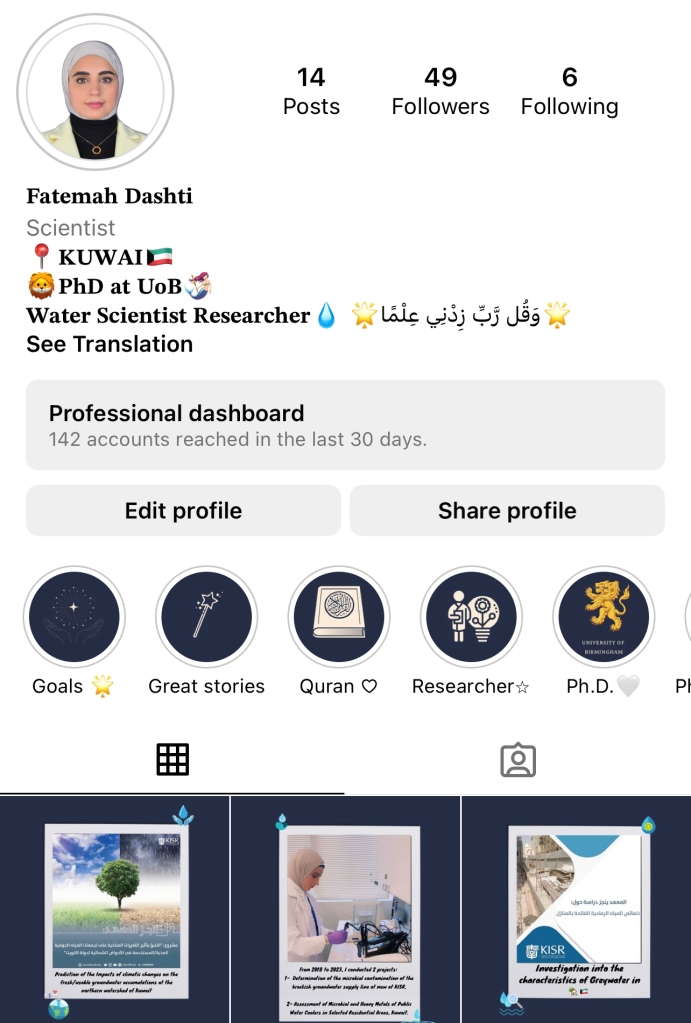In our last post of 2023, Fatemah Dashti, a PGR in Civil Engineering, shares her experience of initiating research collaborations via social media.
In recent years, the role of social media has become an integral part of the academic journey. If you were to ask any researcher across the world about their use of social media in recent times, the resounding answer would be yes. The use of social media platforms has revolutionized the means by which researchers disseminate their work and establish connections within their academic communities. Imagine a life without social media, it’s a scenario that prompts reflection. Personally, as a PhD student, I’ve witnessed the profound impact of social media on both my personal and academic spheres. It goes beyond a mere tool for communication; it has become a lifeline connecting me with family, especially when they are miles away.

Platforms like Instagram have become spaces where I can share the joy of my paper publications and celebrations, reaching friends across the world. Social media serves as a complementary tool to conferences and journals, rather than a replacement. In recent times, a significant scientific conferences have transitioned to live online platforms, utilizing platforms such as YouTube or Instagram.
In the years 2017 and 2018, my experiment into environmental volunteering took root through Instagram. It all began with a post from the Date Palm Friends Society account, extending an invitation to join their environmental volunteer community. Motivated by this post, I took the plunge and joined several environmental events organized by the Date Palm Friends Society. These events were considered to increase environmental awareness. One of the standout features of these events was the inclusion of environmental lectures conducted by researchers from different countries. In May 2018, during an environmental projects event, I presented on the conversion of tidal seawater energy into electricity. The event was hosted by the Kuwait Environment Public Authority. This journey, ignited by a simple Instagram post, unfolded into a rich of experiences. From actively participating in environmental events to absorbing the insights shared by environmental researchers, each step contributed to my growing understanding of environmental sciences.
In my journey at the Water Research Centre within Kuwait Institute for Scientific Research, I had unforgettable experience as a team member in the “Assessment of the Potential of Dibdibba Shared Aquifer (WM066C)” project. Our challenge was to develop a conceptual numerical model for the shared Dibdibba aquifer which demanded groundwater well data from Iraq and Kingdom of Saudi Arabia. As a team member, in conversation with the project leader, the solution came unexpectedly, by Instagram. I suggested to the project leader, about connecting with hydrology researchers I follow them on the Instagram platform. Engaging with researchers through Instagram proved to be a game-changer. The collaboration with experts unfolded seamlessly, and the missing pieces of our aquifer puzzle fell into place. In conclusion, our journey through the assessment of the Dibdibba shared aquifer project became not just a scientific exploration but a testament to collaboration through the lens of one of the social media platforms which is Instagram.





 At the beginning of September, a friend and I ran an
At the beginning of September, a friend and I ran an 
